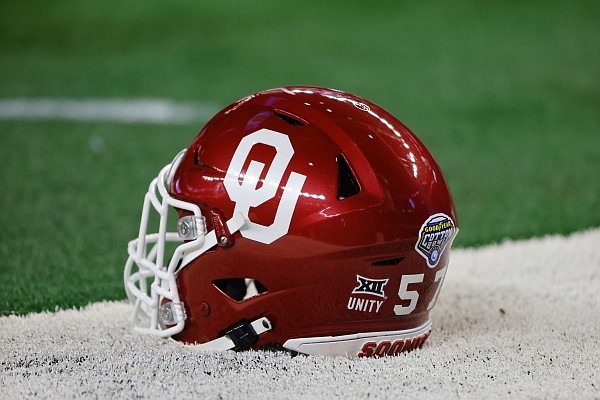AUSTIN, Texas — Texas and Oklahoma have been in serious talks with the Southeastern Conference for "six months at a minimum" about bolting from the Big 12 to join the SEC, and they are closing in on a deal that could be finalized by next week, prominent Big 12 and SEC sources told the Austin American-Statesman on Friday.
As of mid-day, Texas is strongly considering sending a letter on Monday to the Big 12 offices saying it will leave the conference with plans to join the SEC. And the 14-school SEC will vote 13-1 to approve invitations to the Longhorns and Sooners. Texas A&M currently plans to oppose the invitation.
Furthermore, the high-level Big 12 source said that Texas Gov. Greg Abbott might be the only person who could derail these expansion talks and that A&M officials were kept in the dark about the secret talks with the SEC.
"The A&M leadership was left out," the source said. "A&M was told they would just have to live with it."
Asked if that were true, one very well-connected SEC source told the Statesman, "I would not dispute that."
Meanwhile, four lawmakers with ties to other Big 12 schools, including state Rep. Jeff Leach, R-Plano, met Thursday with Abbott's staff to discuss ways to head off UT's departure, the Texas Tribune reported.
As news of the overtures to the SEC was coming to light Thursday, Leach said he was drafting legislation to require UT to obtain the Legislature's approval before leaving the Big 12.
This could be a tricky time, however, for the Legislature to get involved.
First, Abbott would have to add the Texas-SEC issue to a special session's agenda, then Leach would have to navigate the competing interests of lawmakers to gain support for his proposed bill.
For example, state Sen. Drew Springer, R-Muenster, tweeted his opposition to the legislation, saying the University of North Texas and Texas State could easily replace the Big 12 departures.
"More money for Texas schools," Springer said.
Second, all action has been stopped in the current special session because House Democrats traveled to Washington to kill a Republican elections bill by breaking quorum. Democrats have vowed to stay away until the session ends Aug. 7. Abbott said he will call another 30-day special session to begin Aug. 8, and Democrats have not disclosed their intentions for that gathering.
Abbott, a UT graduate who has watched his alma mater's games from the sidelines, has occasionally dipped his political toe into the sports world. In 2019, he threw his support behind a bill that required UT and A&M to play each other in football on the fourth Thursday, Friday or Saturday of November, returning a marquee matchup between the two schools to college football's rivalry weekend. That bill, however, failed to clear even the first hurdle in the legislative process, and no similar bill was filed in this year's regular session.
Any such move to the SEC could become official as soon as next week, but no one has speculated what might be Texas' and Oklahoma's first season to compete in the SEC. Part of the allure to joining the SEC is the potential for drastically increasing their revenue through television rights, but also because of enhanced home schedules.
With the annual OU game played at neutral-site Dallas and Texas A&M no longer on the schedule, Texas typically plays one marquee opponent at Royal-Memorial Stadium each fall. The last time it played a full schedule before the pandemic hit, the Longhorns hosted LSU in one of the best intersectional games of the 2019 season.
In the future, Texas has high-profile home games scheduled with Alabama, Michigan, Ohio State, Georgia and Florida along with smaller opponents like Rice, Louisiana-Monroe, Wyoming, Colorado State, UTSA, San Jose State and UTEP. As far as season ticket sales go, those less attractive matchups don't move the needle.
The SEC distributed $45.5 million to each of its 14 members from the 2019-20 fiscal year, the league announced in February. The Big 12 distributed just $34.5 million to each of its 10 members for the 2020-21 fiscal year.
The Big 12 source said he's been told Texas and OU might command as much as $60 million a year as their annual SEC share, which would offset much of the losses of revenue from the potential dissolution of the Longhorn Network and hefty buyout fees paid to the remaining Big 12 members.
ESPN reported Thursday that both Texas and Oklahoma would likely owe the Big 12 upward of $76 million apiece to buy out the remainder of their grant of media rights agreement, which runs until 2025.
"I can't imagine them sticking around," the Big 12 source said. "That'd be like getting a divorce and still living together for four more years."
The league's presidents and athletic directors, minus those from Texas and OU, met by conference call on Thursday night for only about an hour.
The Big 12 would be left scrambling, either trying to secure invitations from other Power Five conferences or exploring adding schools like Houston, SMU, Cincinnati, Central Florida, BYU or Boise State to the league.
Texas and Oklahoma have not notified the Big 12 that they intend to leave the conference, and the two schools are tied to the Big 12 with grant of rights through the 2024-25 school year. That means if they left, they would forfeit their share of revenue from the league's television package for every year remaining on that contract.
That said, Texas and OU would likely recoup much if not all of that money through bigger television rights to the SEC's package, which includes the third-tier SEC Network. Texas would have to relinquish the Longhorn Network, which has been a divisive force in the Big 12 but highly profitable to UT with an income of $15 million a year though June 2031.

